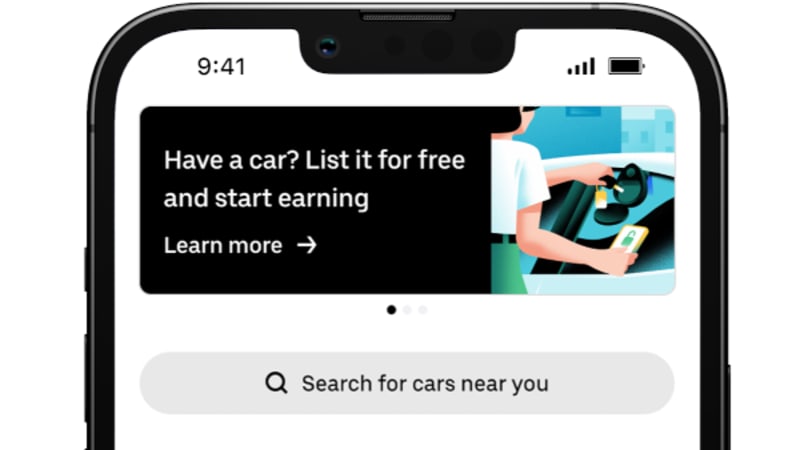Uber is bringing its Turo-like car-rental service to North America

Uber plans to bring peer-to-peer car sharing to North America, starting with Toronto and Boston, the company said at its Go-Get product event in London.
The ride-hailing and delivery app company launched a car-sharing service in Australia last year after acquiring local startup Car Next Door. The service, which lets users rent out their vehicles, has since been rebranded Uber Carshare.
Customers located in Uber Carshare cities can use the app to browse and reserve vehicles, which will be available to rent by the hour or the day. Customers must drop off the rented vehicle wherever it was picked up. Uber said it will suggest pricing. However, owners will have the power to set the final price as well as availability. Fuel is included in the cost.
Uber has couched this as a sustainability move and part of its effort to curb emissions — goals that were repeatedly mentioned during the event. At another Go-Get event earlier this year, Uber revealed a slew of new products and features aimed at attracting a new set of customers from teens as young as 13 and families that want to link accounts to even those who might feel more comfortable calling for a ride instead of using the app at all.
“Driving down emissions is the defining challenge of our generation, and every day we make dozens of choices that impact the planet, from the food we eat to the transportation we choose,” Uber CEO Dara Khosrowshahi said in a statement. “While our personal values guide these decisions, convenience does too, which is why Uber is making it easier for millions to make greener choices, one ride and delivery at a time. The small changes we’re announcing today add up to something big: building sustainability into the core user experience across our global platform to reach our zero-emissions goals together.”
Uber wouldn’t share where the car-sharing service might launch next. But the company has prioritized high-density cities with a number of surrounding areas that can require a car for travel.



